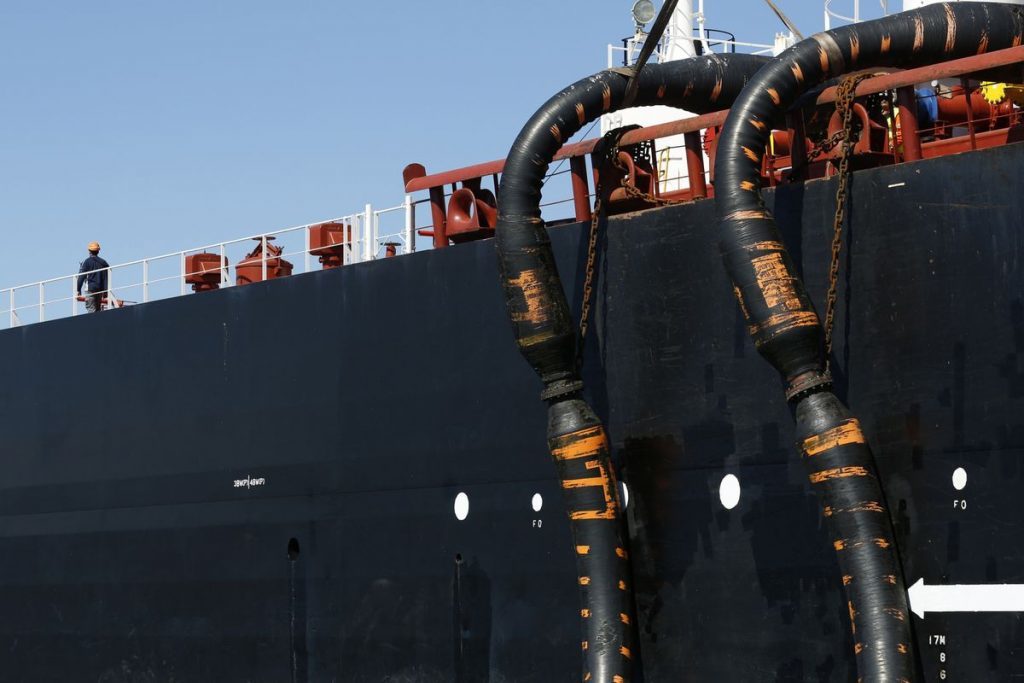
Oil extended gains as investors assessed geopolitical risks with speculation that the U.S. president and Saudi Arabia’s crown prince discussed countering the influence of Middle East producer Iran.
Futures rose 0.1 percent after climbing to the highest level in more than three weeks on Tuesday. Donald Trump hinted at a withdrawal from a deal curbing Iran’s nuclear program as a U.S. visit by Saudi Arabia’s Mohammed Bin Salman began. Such a decision would raise the risk of the OPEC member’s oil exports being curbed by sanctions. Meanwhile, industry data was said to signal an unexpected decline in American crude inventories last week.
The specter of conflict involving giant producers is jolting prices, which have traded in a $4-range since mid-February. With the Organization of Petroleum Exporting Countries and its allies concluding that the market will re-balance by the end of September, Citigroup Inc. predicts oil’s recent “sideways” move is unlikely to last. Still, investors will be wary of U.S. supplies, which have threatened to undermine OPEC’s efforts to eliminate a global glut.
“Geopolitical risks and uncertainties are rising in the market as the U.S. and Saudi Arabia share the same interest, which is isolating Iran,” Will Yun, a commodities analyst at Hyundai Futures Corp., said by phone in Seoul.
West Texas Intermediate for May delivery added 6 cents to $63.60 a barrel on the New York Mercantile Exchange at 2:24 p.m. in Singapore. Total volume traded was about 55 percent below the 100-day average. The April contract expired Tuesday after adding 2.2 percent to $63.40, the highest close for front-month futures since Feb. 26.
Brent for May settlement gained 9 cents to $67.51 a barrel on the London-based ICE Futures Europe exchange. Prices rose $1.37, or 2.1 percent, to $67.42 on Tuesday. The global benchmark crude traded at a $3.90 premium to WTI for the same month.
If Trump decides to exit the deal under which international measures were removed on Iran in return for a curbing of its nuclear program, it would likely be welcomed by Saudi Arabia, which regards the deal as a boon for its regional foe. The resumption of sanctions could drag down oil exports from the Persian Gulf state by 250,000 to 500,000 barrels a day by the end of this year, industry consultant FGE said last week.
In the U.S., the American Petroleum Institute was said to report that nationwide crude stockpiles tumbled 2.74 million barrels last week. That would be the largest decline since early January if confirmed by the Energy Information Administration data scheduled for release on Wednesday. A Bloomberg survey ahead of the government report forecast stockpiles rose by 3.25 million barrels.
“I think there are conflicting views on the U.S. crude stockpiles and we should wait for the EIA data to confirm the decline,” said Hyundai Futures’ Yun.